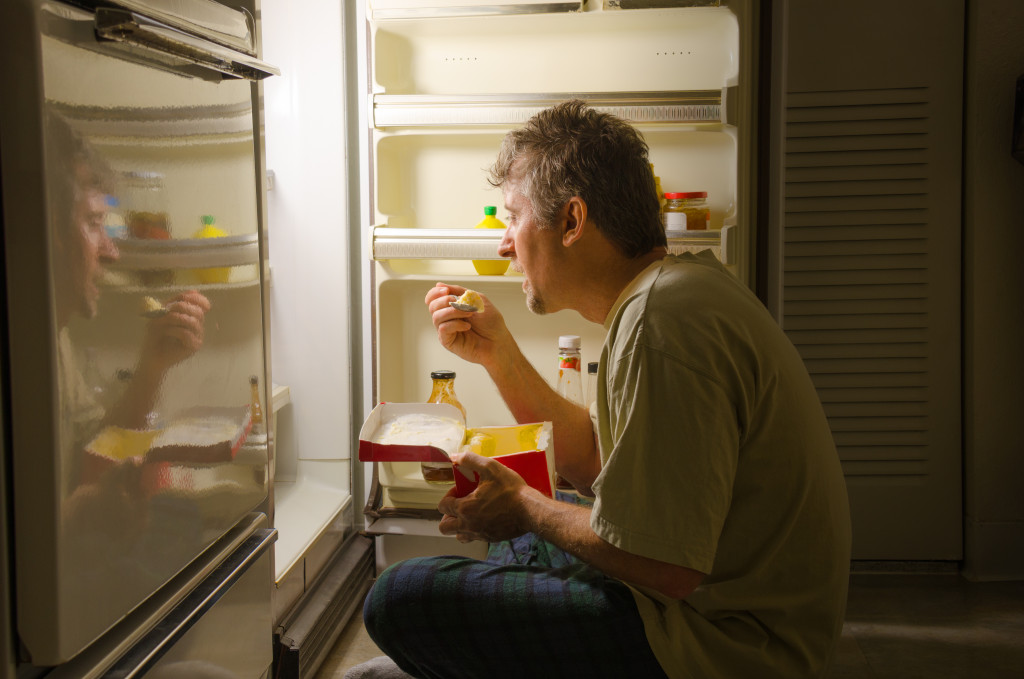Binge eating disorder (BED) is a condition wherein a patient consumes large amounts of food, usually in a short period. Episodes of binging are often accompanied by feelings of shame, guilt, and upset, as well as a loss of control during the binge. People with BED do not regularly use unhealthy behaviors to compensate for their binging (purging or excessive exercise), but they can occur.
Needless to say, binge eating disorder is a life-threatening disorder that when untreated, can cause severe physical effects, including high blood pressure and diabetes. Early diagnosis and swift treatment are the keys to curing the disorder before it results in negative health conditions.
A major point in BED treatment plans is knowing and understanding what your triggers are. The same goes for anorexia treatment and recovery plans since people with anorexia nervosa can also engage in binge eating (only to throw it up afterward).
If you have been diagnosed with BED, here are the common triggers for binge eating categorized into physical, emotional, and environmental–as well as how you can avoid them.
Physical trigger
There is one common physical trigger that many people with BED experience, and that is feeling ravenous or overly hungry.
Even people without eating disorders tend to overeat when they go hungry and finally gain access to food. For people with BED, the tendency to overcompensate for their hunger is tremendous. This behavior is also very common for people with BED who skip meals, restrict their diet, or intentionally go hungry so that they can overeat later.
If you are getting treated for BED, you will likely have received a diet plan from your specialist or treatment center. It is crucial that you follow this diet plan to avoid getting hungry, which can trigger you to overeat later in the day. If you tend to engage in this behavior, always make sure that you have nutrient-dense snacks with you to prevent hunger until you can sit down for a meal.
Emotional triggers
Most episodes of binge eating disorder are caused by emotional triggers. People who engage in emotional eating are not necessarily hungry, but are instead driven by the need or desire to feel comfort.
The common emotional triggers for overeating include:
- Stress
- Anxiety
- Boredom
- Trauma
- Social eating
- Loneliness
- Discomfort
- Physical and emotional pain
- Negative self-image

If you tend to overeat because of your emotions, there are lots of ways to pull yourself from the urge. Speak with your specialist about healthy coping mechanisms that you can use whenever you feel the need to binge. Here are several examples:
Go out for a walk or jog.
Exercise can increase happy hormones and thus reduce the negative emotions that you’re feeling.
Talk to a loved one.
Talking about your emotions can help ease them. You don’t even have to talk about your problems specifically; you can just go with a normal conversation to distract yourself from the urge to binge.
Pause.
If you’re already eating, stop for five minutes to determine if you’re truly hungry or just eating your emotions away. If it’s the latter, try to put down whatever you’re eating and drink some water to wash the taste away.
Engage in your hobbies.
Keep yourself occupied with a hobby, like reading a book, watching a show, making a piece of art, or listening to music. Doing something you love will not only prove as a great distraction, but it can also relieve stress, depression, and anxiety.
Environmental triggers
These triggers are the things around you that make you want to eat even when you are not hungry. Common examples include:
- Attending social events with food
- Passing by a restaurant or food stall
- Seeing free foods in your workplace
- Being offered foods by friends, family, co-workers, etc.
- Receiving large portion sizes at restaurants
- Having excess amounts of food in your house
Some of these triggers are out of your control, but there are still plenty of ways you can avoid the other ones as much as possible.
Plan your meals.
By planning your meals in advance, you can avoid buying food on impulse.
Shop wisely.
Avoid storing unhealthy convenience foods in your house.
Cut your portions.
Have half of your meal packed to-go. Use smaller dishware to keep your portions in line. Follow the recommended portion sizes on nutritional labels.
Treating binge eating disorder, or any type of eating disorder for that matter, is a tough road. Nevertheless, understanding your triggers is one of the best ways to kickstart your treatment plan, as well as avoid hiccups along the way.

